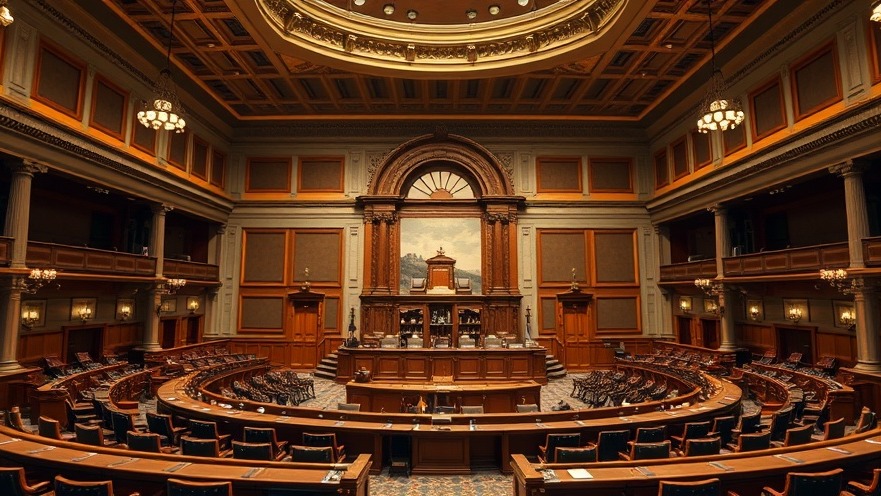
Texas GOP's Efforts to Control Local Policies Expands
In yet another move to tighten their grip on local governance, Texas Republican lawmakers are pushing legislation aimed at financially punishing cities that deviate from state laws. This follow-up to the previously enacted 'Death Star' bill allows the attorney general to freeze a city’s sales tax revenues for up to 90 days if state law is deemed violated. Texas, particularly its major urban areas like Austin and Dallas, finds itself at a crossroads that could redefine how local governments operate.
A History of Local Control Erosion
The erosion of local governance in Texas has been an ongoing initiative, especially in large Democratic-led cities. Lawmakers have previously restricted urban areas from regulating oil and gas drilling, cutting police budgets, or providing housing vouchers that support vulnerable populations. Such decisions often serve the narrative that local regulations stifle business growth and economic opportunities.
Are Local Leaders Losing Their Power?
As Republicans advance their agenda, critics warn that limiting local control impedes officials’ ability to address specific community challenges. Steven Pedigo, director of the LBJ Urban Lab at the University of Texas, emphasizes that effective local governance is crucial for addressing persistent problems like transportation and water infrastructure. Without local autonomy, such challenges continue to mount in a growing state that requires tailored responses.
Public Response and Potential Consequences
The public response to these restrictive measures has been mixed. Supporters argue it is a necessary step to ensure conformity with broader state objectives, while opponents view it as an attack on the democratic principle of local self-governance. Moreover, the implications of these legislative efforts may resonate beyond policy realms; residents might find diminished representation as their local leaders struggle against state-level constraints.
Collaboration vs. Confrontation
The heart of the matter lies in the ongoing conflict between state and local entities. The lack of collaboration breeds discord, ultimately making it harder to solve pressing issues. Pedigo cautions that if local officials must constantly fight for their budget and legislative power, collaborative problem-solving will be stifled, leaving critical issues unresolved.
Looking Ahead: What’s Next for Texas Cities?
The road ahead is treacherous. With state lawmakers poised to introduce further financial penalties for non-compliance, urban governance in Texas may undergo radical changes. As community identity and local agency stand at risk, expectations for bipartisan cooperation over essential issues could be overshadowed by contentious political battles.
Key Takeaways: Strengthening Local Governance or Eroding It?
This ongoing narrative reveals critical insights for Texas residents about the dynamics between local and state governance. Citizens need to stay informed about the evolving legislative landscape to make empowered decisions in upcoming elections. Understanding how these laws potentially affect everyday life in Texas could enhance advocacy for local issues.
Call to Action: Engage in the Conversation
As these political developments unfold, it’s crucial for Texas residents to voice their opinions and engage in discussions about local governance and policies. Educate yourself on the impact of these measures and consider advocating for more local control to ensure responsive and representative governance.
 Add Element
Add Element  Add Row
Add Row 



Write A Comment